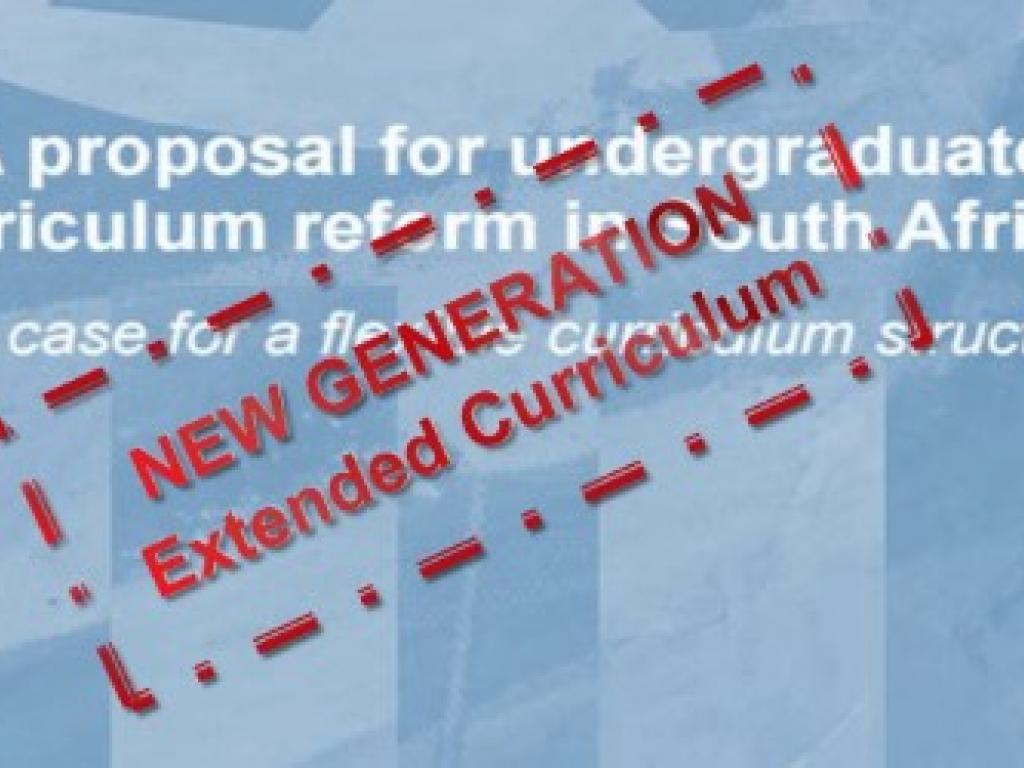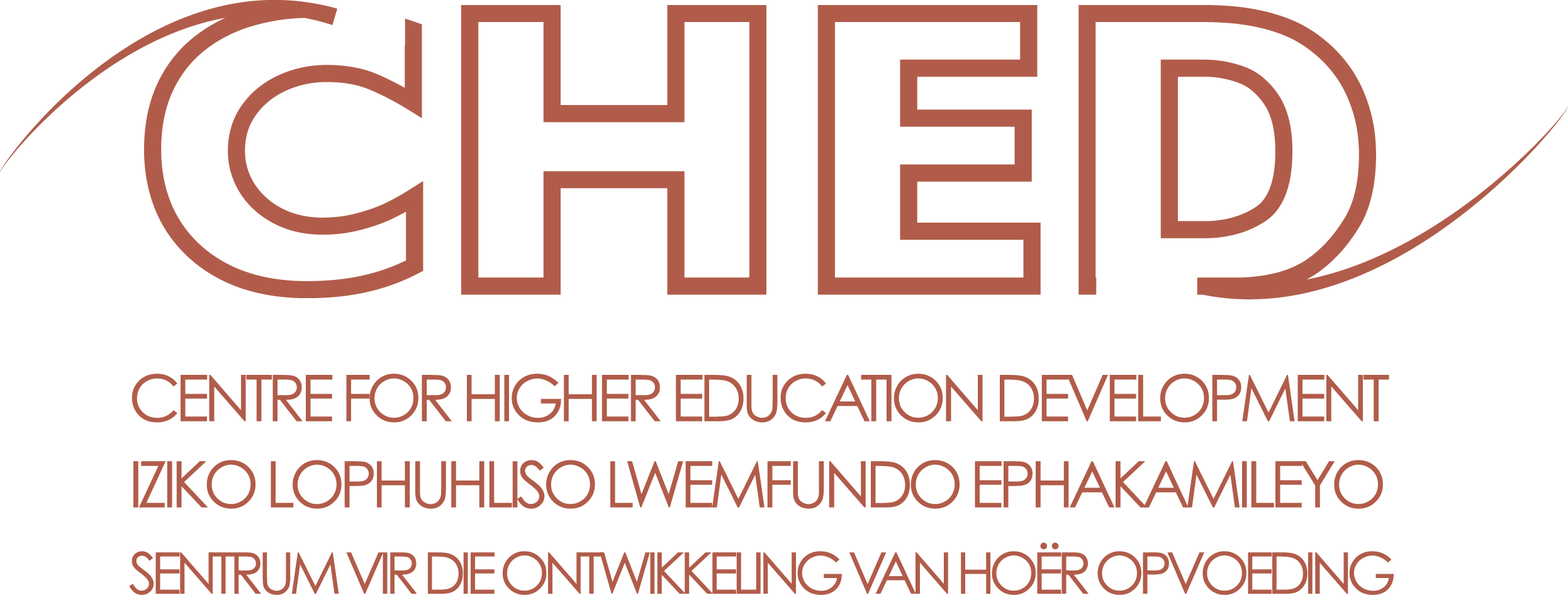New Generation Extended Curriculum: Report

Executive Summary
In August 2013 the Council for Higher Education (CHE) released “A proposal for undergraduate curriculum reform in South Africa: A case for a flexible curriculum structure” (CHE, 2013). The argument was that the current curriculum structures pose a systemic obstacle to access and success that can only be overcome through deliberate intervention at a systemic level. Until such time as the proposal is approved, higher education in South Africa finds itself in the precarious position of ambitious targets for growth in enrolments and graduation rates but without a systemic plan for how these targets will be achieved. The DHET is committed to a range of strategies for improving student success. One of its key strategies is increased investment in ear-marked funding for extended curriculum programmes, also known as foundation programmes. The question however is, will these extended curriculum programmes as they are currently being implemented enable the systemic reform required? The CHE proposal argued that despite some successes the existing Foundation Programmes will not achieve the scale of reform required. This is not only a matter of scale but also the poor completion rates of the majority of these programmes point to existing inefficiency. In its own analysis of the 2000-2008 cohorts DHET (2016) notes significant improvement in first year attrition rates which may in part be as a result of Foundation Programmes. They concede, however, that this has not resulted in the necessary improvement in graduation rates; with nearly half of those enrolled failing to complete within 5 years’ time.
In 2014 a multi-institutional research and development project was launched -- funded by the DHET Collaborative TDG -- with the aim of understanding the strengths, limitations and overall effectiveness of the current extended (EXT) curriculum programmes, and what reform is required to strengthen the contribution of these programmes to systemic reform. Across four universities, a total of nine extended curriculum programmes from faculties of Engineering, Science, Commerce and Humanities were investigated.
The first key question of the study is, what are the key principles that need to inform undergraduate curriculum reform in South Africa? Drawing on the CHE (2013) Flexible Degree Proposal (FDP) the research findings propose that in order to address key structural problems, the following curriculum reform principles need to apply:
* Foundation provision: at the entry level there is a recognition that serious knowledge gaps need to be filled given problematic curricular assumptions about students’ prior knowledge.
* Epistemic transitions: there is further acknowledgment that addressing the entry-level gaps will not suffice; there is a need to scaffold students’ epistemic development beyond foundation provision.
* Enhancement: there is a need for a structure that enables greater ‘breadth’ of exposure in order to produce graduates for the contemporary world.
* Enrichment: there is the necessity for ‘curriculum enrichment through key literacies’.
The study further illuminates how these general principles will vary across knowledge domains, qualification types and institutional contexts. In other words, there is no ‘one-size-fits-all’ reform template. Epistemic access and development in the sciences is different to that of the humanities, and that of the formative qualifications is different to that of the professional ones.
The second key question is, to what extent are the curriculum reform principles of the FDP currently being implemented in existing extended (EXT) curriculum programmes. Drawing on the four institutional case studies, the findings are:
* The curriculum principle of foundational provision is being achieved. Furthermore, the Year 1 to 2 progression data suggests that the majority of the EXT programmes are successfully supporting students through to their second academic year. It is noteworthy that with the exception of two programmes, the Year 1 to 2 progression of EXT cohort is better than the mainstream (MS). This suggests that decades of investment in foundational provision have made a significant contribution to retention and progression into second academic year of study for those students on extended programmes who face significant obstacles in terms of academic, financial and psycho-social preparedness for university study.
* The curriculum principles of epistemic transitions, enhancement and enrichment are not being fully implemented in the majority of the EXT programmes. In other words, the developmental support of the EXT programmes ceases at the end of foundation provision. The average cohort completion data (N=4 years for EXT) is 22% in contrast to 30% for MS. The average cohort completion data (N+3=7 years for EXT) is 47% compared to 59% for MS. This suggests that the investment and resulting positive gains
of the foundation provision are wasted for more than half of the students on these programmes.
* There are four notable exceptions of EXT programmes where all of the principles of the FDP are being implemented. The cohort completion data (N+3) shows that three of these programmes have relatively successful completion rates (54, 63 and 65%) and two of these programmes have better completion rates than the MS. Thus the key finding of this study is that across these case studies the EXT programmes which are truly extended four-year programmes have better completion rates than those which are confined to foundation provision only.
The findings of this study strongly support the DHET’s on-going commitment to Extended Curriculum programmes. These programmes have played a significant role in terms of providing access and retention to South Africa’s most talented and capable but underprepared black students. The success of these programmes in delivering students to their second academic year of study points to the commitment of academic development (AD) staff in delivering a quality of curriculum and wrap-around support which is highly commendable and is likely to attract greater international attention as higher education systems around the globe increasingly face the consequences of inequality on student access and success. These programmes (and the significant academic human resources which make them possible) serve as a very strong base for any future educational investment in curriculum reform in South Africa.
The findings however also suggest that unless these Extended Curricula adhere to the curriculum reform principles of the FDP, the investment will not contribute to the systemic reform required. More pointedly, it will be wasted for a majority of the students who fail to graduate.
In summary we recommend the following:
* Extended curricula programmes need to be designed as four/five-year degree/diplomas with strong foundational provision but developmental provision throughout the curriculum with enrichment and enhancement. If designed appropriately it is possible that this developmental provision can also be made available to mainstream students who would benefit, thereby further extending the reach of the investment.
* The revised policy framework for extended curricula programmes need to not only make this extended provision possible but should incentivize development provision at second/third year level.
* Placement practices onto extended curriculum programmes need to be informed by clear institutional policies that draw on full range of data available. More specifically, NSC results need to be complemented with other data, such as NBTs.
* Developmental provision in the second and third academic year will require significant organizational shifts in the way that AD resources are currently deployed. This will require clear vision and strong leadership both from AD but as importantly from the department and faculties in which these programmes are located. The challenges of achieving these shifts should not be underestimated.
In conclusion, given the stated intention of strengthening the role of extended curricula, this research is an important contribution to the next phase of development of, what we refer to as, a ‘new generation’ of extended curricula. We echo the warning of Badat (2015) who, with specific reference to the CHE proposal argues, “unless much needed academic transformations are instituted, we will deny opportunities to people from socially subaltern groups, tragically waste the talents and potential of these individuals, and perpetuate injustice. This compromises democracy, which proclaims the promise of greater equality and a better life for all people.” The demands for transformation initiated by the #RhodesMustFall and #FeesMustFall student protests during 2015 point to the very urgent need for research-informed, evidence-based, systemic and structural reform. It is hoped that this research will make a contribution to this reform.
Read the full report here.
